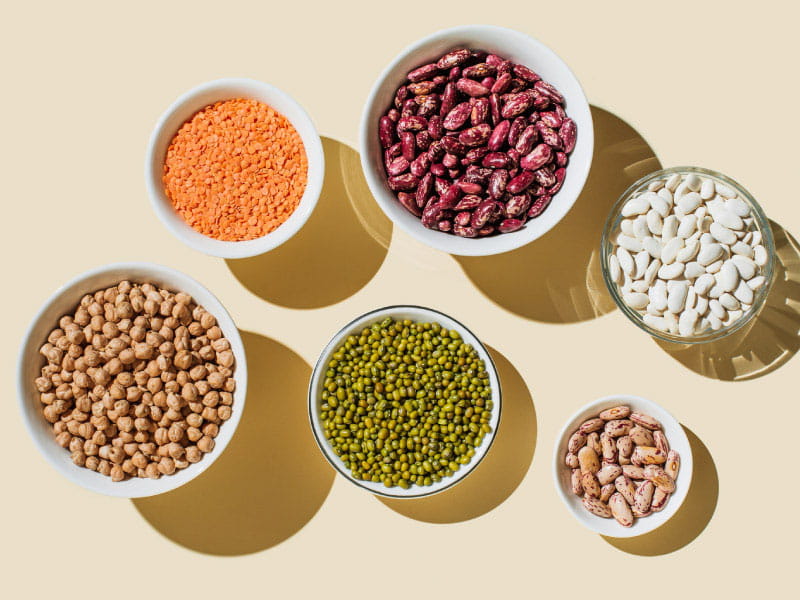Plant-based proteins may help lower high blood pressure risk
By Laura Williamson, American Heart Association News

Eating more minimally processed plant-based proteins – such as beans, nuts and lentils – may lower the risk for high blood pressure, according to new research.
The study, published recently in the Journal of the American Heart Association, also suggested that minimally processed animal proteins could be included in weekly meal plans without significantly affecting a person's high blood pressure risk.
"Our study focused on foods, not the plant-based supplements that can be found on store shelves," said the study's senior author Dr. Marcia Otto, a nutritional epidemiologist and an associate professor at UT Health Houston School of Public Health.
Nearly half of adults in the U.S. have high blood pressure, or hypertension, a condition that raises the risk for heart attacks, strokes and other health problems. Prior research has shown diet plays a critical role in the prevention and management of high blood pressure. A large body of evidence finds that eating patterns rich in fruits, vegetables, whole grains and low-fat dairy that are also low in sodium and saturated fat can significantly reduce blood pressure. But how proteins within these eating patterns affect blood pressure has been unclear.
In the new study, researchers investigated how the quantity and diversity of proteins a person eats from plant and animal sources might affect their hypertension risk.
Researchers analyzed data for 2,294 participants in the Multi-Ethnic Study of Atherosclerosis who filled out a 120-item questionnaire about the foods they ate. Participants also indicated they had no history of high blood pressure. They were an average 58 years old at the start of the study and were followed for up to 18 years, with a median follow-up of almost nine years.
Overall, participants reported eating an average of 68 grams per day of protein, with about 24 grams coming from plant sources and the rest coming from animals. On average, participants consumed nine different types of protein per week.
Researchers found no strong evidence to support a link between animal protein intake and high blood pressure risk. But they did find that the more plant-based proteins a person ate, the lower their risk for hypertension.
For every 20 grams of plant-based protein consumed each day, the risk for hypertension decreased by 16% compared to those who ate the fewest plant foods. Those benefits leveled out once a person consumed 30 grams of plant-based protein.
But eating a broader range of plant protein sources ended up increasing high blood pressure risk among the participants. While the study did not investigate why, Otto said the findings indicate that participants who consumed a broader range of plant protein sources may include highly processed plant-based options in their diet, which could increase the risk of high blood pressure.
"Their eating patterns started to move toward less healthy plant protein options," she said.
The amount of protein found in plants and animals varies. For example, 3 ounces of light tuna fish canned in water has almost 22 grams of protein, 1 cup of store-bought hummus has 19 grams, and 1 cup of boiled lima beans has 15 grams. According to the American Heart Association, which funded the new study, good sources of plant-based protein include beans and legumes, chickpeas, lentils, edamame, nut butter, oats, quinoa, nuts and seeds, tofu and soy milk. These whole foods also contain high levels of dietary fiber, vitamins, minerals and other nutrients.
"I think in many ways this study reaffirms things we already knew," said Dr. Matthew Landry, an assistant professor of population health and disease prevention at the University of California, Irvine.
But the findings underscore the importance of choosing those plant proteins wisely, Landry said. He was not involved in the research.
When it comes to plant-based proteins, it's important to choose whole food sources, he said. "People should focus on more minimally processed proteins rather than the highly processed ones."
For example, Landry said, "a very simple plant-based protein like tofu is very different from a burger made from meat alternatives. Both contain plant proteins, but they undergo different levels of processing," meaning they can have different amounts of sodium, saturated fat and other additives. "You can't just lump them under the same 'healthy' umbrella," he said.





